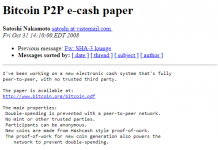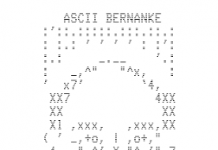CARACAS — These days Venezuela is featured in many headlines around the world, and not in a good way. The opposition politician Juan Guaidó wants to take power after declaring that the Maduro government is illegitimate, and a struggle persists between the two sides.
All the stories about our economic, political and social crisis make it easy to forget that in Venezuela, there is still life and movement. And in spite of all the chaos in the country, most people are not engaged in political conflict. They are just focusing their efforts on finding enough money to survive.
Venezuelans work hard, even traveling from one city to another just to make enough money to eat every day. Others have succeeded in their ventures, seizing the opportunities opened by the crisis in the country.
This is not to say that the government is taking clear action to better the lives of its citizens. Nor do I deny that a great migration is happening: Many people I know have already migrated to other countries. And yes, there are more people living on the street and eating out of the garbage than I have ever seen in my life. The public health situation is getting worse every day, due to the costliness and scarcity of medical treatments. But sadly, bitcoin is not going to solve those problems.
And yes, it’s certainly true that some of us are actively using cryptocurrency to help get through this crisis, leading to many articles about the power of bitcoin in Venezuela. I personally wrote an article about how bitcoin is a lifeline for some Venezuelans.
But let’s not overstate the popularity of bitcoin in Venezuela. And please don’t use our crisis to attract attention to your crypto campaign. I don’t want to single out just one project, as there are many examples, including the supposed more than 2,500 merchants who accept Dash in the country, an airdrop campaign from AirTm and a lesser known crypto donation project from Coinbase.
Some people like the idea of sending cryptocurrency to Venezuelans, perhaps by airdropping bitcoin. These projects might sound harmless, and perhaps some are well-intentioned. The problem is that the Venezuelans able to receive crypto are generally not the ones in most urgent need in help. Cryptocurrency remains unknown to the vast majority of Venezuelans.
How the crypto ecosystem in the country has changed
Since my last LongHash article about Venezuela, the crisis in general has worsened. Now there is a new political crisis, and at an economic level, it continues to get worse. The currency of the country underwent a monetary conversion, where 5 zeros were removed and it was renamed “Bolivar Soberano (VES). At the time of writing a coffee cost more of 1,800 VES or more of USD $0.5 dollars.
With the constant devaluation of the VES and the repeal of the law of illicit exchange rates, people are already trading currency more openly, especially into dollars. It is nonetheless still difficult to get dollars, since the government continues to maintain control over the currencies that are legally traded in the country. This encourages people to try bitcoin and maybe other cryptocurrencies, with the most popular platform being the peer-to-peer trading platform LocalBitcoins.com. Venezuela ranks second in LocalBitcoins trade volume, with Russia taking first place. Even now, Venezuela is the country with the most LocalBitcoins traffic.
The Venezuelan government, is also trying to participate in the crypto fever, especially given international sanctions. The government recently has launched new platforms for currency exchange and remittances, where those using cryptocurrencies are burdened with high fees and unfavorable rates. The government is also promoting its own cryptocurrency, the Petro, even forcing people to receive their pension payments in Petros. The government has allowed the formation of several cryptocurrency exchanges, but they are still waiting for official regulation.
Although crypto is no longer an “underground” topic the way it was a few years ago, there are still barriers to widespread dissemination and acceptance. Many people see crypto as a scam, or don’t have the connectivity to access it. Venezuela’s Internet continues to deteriorate, as the government manages most of country’s telecommunications concessions. Once you get far from the big cities it is even harder to get an good Internet connection. Smartphones, which tend to be priced in dollars, are even more expensive for Venezuelans now.
You might think that Venezuelans would be relatively aware of cryptocurrency, since our own government is promoting it. But even so, there is very little knowledge or trust. Even my own family would not dare to manage their own bitcoin, so I manage their little funds for them. And yes, there are a lot of merchants who claim to accept cryptocurrencies, but if the owner is not there, they don’t want to deal with crypto.
Venezuelan cryptocurrency mining has also attracted media attention, but it’s important to note that mining is heavily regulated. If you are private and you want to import mining equipment, you have to pay high customs taxes, which makes equipment unprofitable. Those who wish to mine legally, so that they have the protection of the government, have to navigate a confusing and ill-defined bureaucracy. There are public sales offices for mining equipment, which apparently have direct contact with the government. Still, police will sometimes seize mining equipment if they see an opportunity to do so, and these seizures are often not reported due to victims’ fear of reprisals.
Generally speaking, one of the best bitcoin use cases is for moving capital across borders, especially for small and medium-size enterprises. Some people use cryptocurrencies to send and receive remittances, or to use as a store of value that is more trustworthy than the Bolivar and easier to obtain than the dollar. It can also be used as a method of payment for freelancers. Some businesses that sell technological equipment have started to use bitcoin as a form of payment, as a way to move currency without having to deal with international banks.
But again, all these use cases are limited to those who dare to use bitcoin and other cryptocurrencies. Other Venezuelans simply do not understand bitcoin or are not interested in it, and would rather fight to find dollars or friends with international bank accounts to help them move funds outside of the country.
Bitcoin can play an important role for some people in Venezuela, but cryptocurrency adoption is not massive and should happen in a more organic way. A lot of foreign crypto enthusiasts simply don’t understand our country. Don’t try to fit Venezuela’s crisis into your favorite crypto narrative.



















